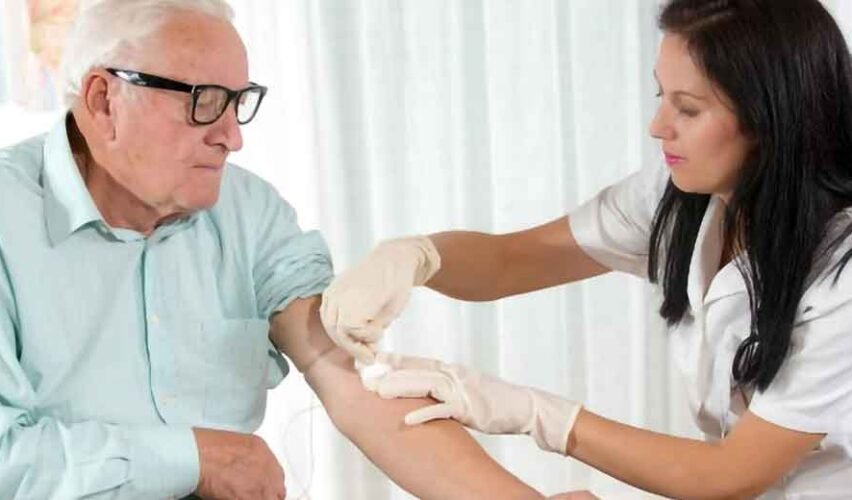If you’ve never been to a private GP before, it can feel a bit uncertain. Is it the same as seeing a regular GP? Will it be more formal? Less rushed? Do you need to bring anything special?
The idea of stepping into a different kind of healthcare environment can bring up plenty of questions. The good news is that a visit to a private GP is typically straightforward, personal, and designed to be efficient. Still, knowing what to expect can help you feel a lot more comfortable before your appointment.
Here’s how it usually works.
Booking Is on Your Terms
One of the first things you’ll notice is how easy it is to get an appointment. Unlike traditional GP surgeries where you might wait days or even weeks, private GPs like those at Sloane Street Surgery usually offer same-day or next-day availability. You’ll often be able to choose a slot that fits into your schedule, whether that’s early morning, during lunch, or after work.
There’s no need to be registered long-term either. Many private practices let you book a one-off consultation without committing to anything beyond that.
A More Personalised Approach
Private GPs often have longer appointment times. Instead of the usual 10-minute rush, you might get 20, 30, or even 45 minutes. That gives space for a more in-depth conversation, which is especially useful if your symptoms are complex or you have more than one thing to discuss.
Expect a calm, unhurried atmosphere. The GP will usually take the time to ask detailed questions about your health, lifestyle, and concerns. They’ll also listen without cutting you off, which can be a refreshing change.
You Don’t Need to Bring Much – But These Things Help
While you don’t need to arrive with a folder of paperwork, a few things can make your consultation smoother:
- Photo ID– Some clinics ask for this at check-in, so bring it just in case.
- Medical history– If you’ve had recent tests, diagnoses, or treatments, having records or summaries can be helpful.
- Current medications– A list of what you’re taking (including doses) can prevent confusion and speed things up.
- Questions or concerns– If there’s something you don’t want to forget to mention, jot it down beforehand.
Expect the Basics – Plus a Bit More
The GP will start with a conversation about your symptoms and history. From there, they may carry out a physical examination if needed. This could involve checking your blood pressure, listening to your chest, examining your throat, or testing your reflexes, depending on what you’ve come in for.
What sets private consultations apart is the level of detail. There’s usually time to explore things more thoroughly, and you won’t feel like you’re being rushed out the door.
If tests are needed, some can be done on the spot. Blood tests, ECGs, urine tests, and swabs are commonly available in-house. Others might be arranged with a nearby lab or imaging centre. You’ll usually be told clearly how it works, how long results take, and how you’ll be contacted.
You’re in Control of Next Steps
After your consultation, you’ll be given options. If medication is recommended, private prescriptions are often provided immediately. You can choose where to collect your medicine or arrange delivery in some cases. If you need a referral to a specialist, your GP can write one for you, and you’ll be able to choose where and when to go.
There’s also no pressure. Whether you want to take time to think about your options or move ahead quickly, the pace is up to you.
Key Benefits to Keep in Mind
A private GP appointment is about convenience and choice. That shows up in several ways:
- Fast access– Appointments often available within 24 hours
- Longer consultations– More time to explain your concerns
- Clear explanations– No jargon or rushed decisions
- Flexible follow-up– You decide if and when to return
- Privacy and comfort– Clinics are usually designed to feel discreet and relaxed
This isn’t about luxury. It’s about being heard and getting the attention your health deserves.
What It Doesn’t Include
It’s worth knowing that a private GP visit might not cover everything. Things like routine vaccinations, long-term NHS referrals, or public health screenings may still need to go through your regular GP. If that’s the case, your private GP will usually explain clearly what needs to be done and who can help.
Also, most private GPs aren’t linked directly to NHS records unless you choose to share them. That means if you want your NHS doctor to know what was discussed, you may need to request a summary or letter to take with you.
You’re Not Locked Into Anything
Visiting a private GP doesn’t mean switching away from your NHS GP. It’s entirely possible to use both. Some people do it occasionally for urgent issues, second opinions, or health checks. Others prefer the continuity and speed and go private more regularly.
The flexibility is part of the appeal. You’re not signing up for a membership or leaving your current doctor behind. You’re simply accessing care in a way that suits you best.
How Much Will It Cost?
Prices vary, but most private GP clinics are upfront about costs. You’ll usually pay a set fee for the consultation, with any extra charges explained in advance. This might include things like tests, letters, or prescriptions.
Many people find the predictability reassuring. There are no surprise bills and no complicated pricing to decode.
No Need to Be Nervous
If you’re used to traditional GP visits, your first private consultation might feel a bit different. It’s quieter, more direct, and often more relaxed. But it’s not intimidating. You’re simply having a conversation with a doctor who has time to listen and respond carefully.
You’re still in a medical environment, but it’s designed to make you feel at ease. There’s usually less form-filling, less waiting, and more focus on getting the answers you need.
Making That First Appointment Count
Your first private GP visit is a chance to take charge of your health on your terms. With no time limits, more personalised attention, and a comfortable setting, it’s a completely different pace to what you might be used to.
Come prepared with what matters to you. Ask questions, be open, and don’t feel like you need to rush through anything. This is your space to be heard, to understand what’s going on with your health, and to make informed choices about what comes next.
Whether it’s a one-off check or the beginning of something more regular, your first private GP appointment can be the start of a better way to manage your wellbeing.



